
How to Get People to Say Yes: The Godfather of Influence Dr. Robert Cialdini
Warren Buffett recommends Dr. Robert Cialdini’s book Influence, which has sold over 5 million copies, as one of the best business books of all time. Dr. Cialdini shares his latest findings on how we can all use the tactics of influence and persuasion to get people to say “yes” to us. He recently published a new version of Influence.

The Science of Getting from Where You Are to Where You Want to Be: Katy Milkman
Wall Street Journal best-selling author Katy Milkman shares science-based ways to create change in our lives. She is a professor at the Wharton School at the University of Pennsylvania and author of How to Change: The Science of Getting From Where You Are to Where You Want to Be.
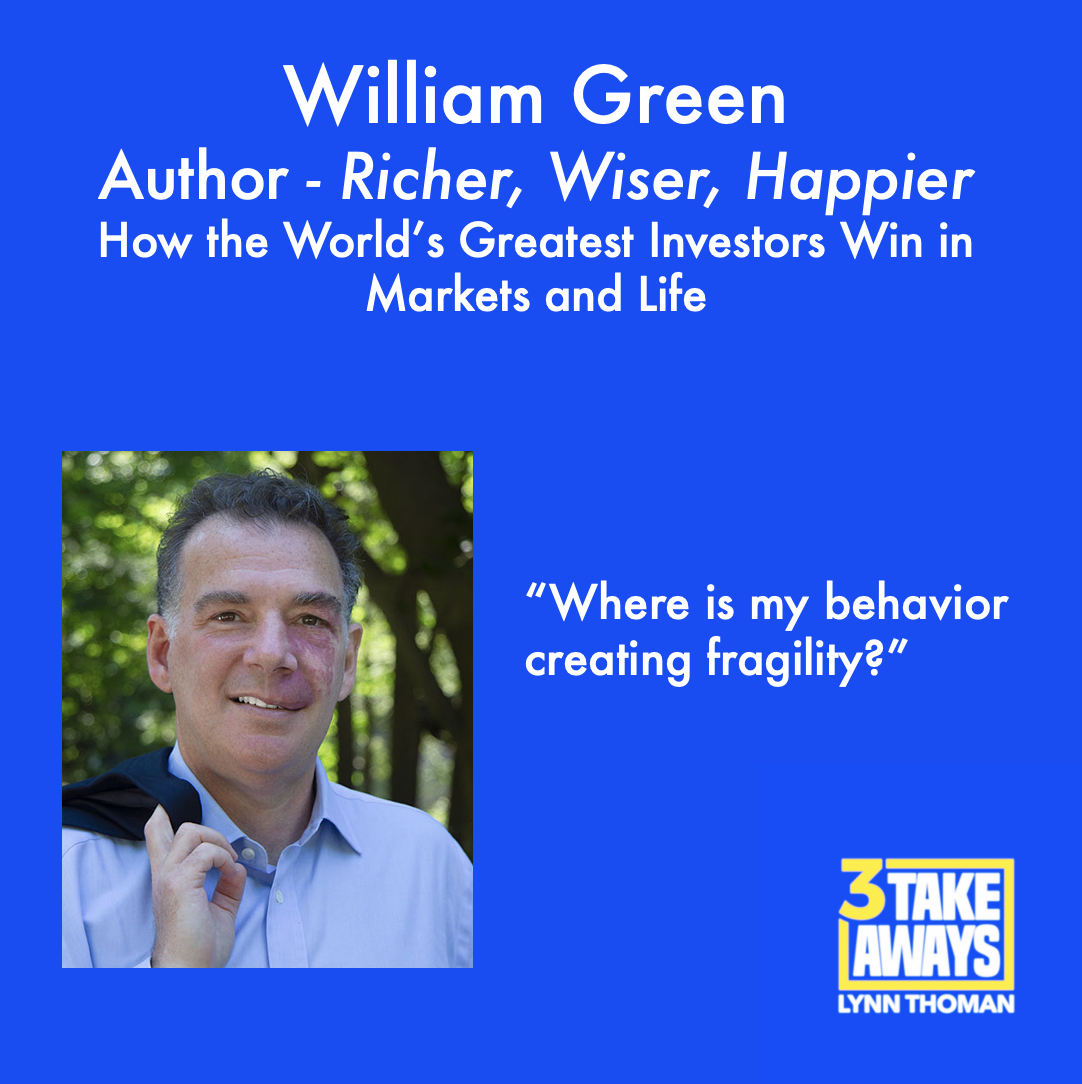
How the World’s Greatest Investors Win in Markets and Life: William Green
William Green shares investing and life lessons from the world’s legendary investors. Learn the surprisingly simple rules they follow to stack the odds in their favor in both investing and in life. Discover their common approaches to investing, such as sublime indifference to crowd sentiment. William Green is the author of Richer Wiser Happier.

The Empathy Diaries and How Tech Changes Us and Our Relationships: MIT’s Sherry Turkle
Founding director of the MIT Initiative on Technology and Self Sherry Turkle shares her personal discoveries with empathy and how tech changes our relationships. She also reveals the implications of constant connection and artificial intimacy.

Losing Trust & Faith in Institutions - Why It’s Happening and the Unexpected Consequences: Yuval Levin
Yuval Levin, Director of Social, Cultural, and Constitutional Studies at the American Enterprise Institute and founding editor of National Affairs, talks about the collapse of trust in our institutions – public, private, civic and political – and its surprising consequences. He explains why it has happened and how we can rebuild lost trust.
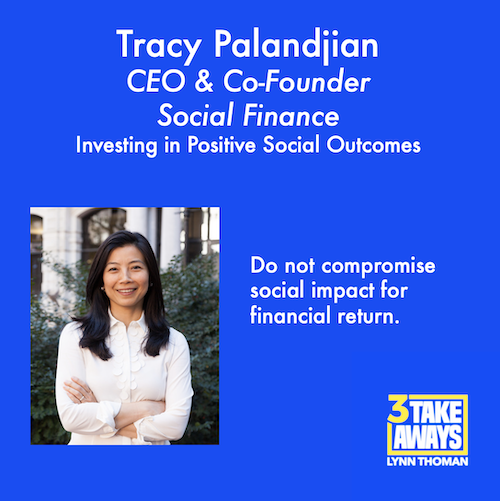
Investing in Positive Social Outcomes with Social Impact Bonds: Tracy Palandjian
Learn from Tracy Palandjian, CEO and co-founder of Social Finance, about using impact investing and social impact bonds for a wide range of social purposes from improving high school graduation to reducing recidivism. Social Finance is an impact investing and advisory nonprofit that has mobilized over $150 million to transform the lives of more than 20,000 individuals across a wide range of issue areas including workforce development, education, and health. To find out more visit socialfinance.org.

Former Secretary of Education Arne Duncan: Education Runs on Lies
“Education runs on lies. That’s probably not what you’d expect from a former Secretary of Education, but it’s the truth.” Arne Duncan exposes the lies and the broken system that have caused American kids to fall behind. He also shares what really works.

A Unique Model of Innovation - Making Breakthrough Discoveries and Turning Them Into Real World Products At an Unheard of Pace: Don Ingber
The Wyss Institute For Biologically Inspired Engineering accounts for 25% of Harvard’s intellectual property startups each year, with discoveries and startups ranging from healthcare to energy, robotics, architecture, and manufacturing. Find out from Wyss founding director Don Ingber how their unique model works and how they make breakthrough discoveries in such a wide range of fields and bring them to market so quickly.

Getting The Odds On Your Side: Legendary Investor Howard Marks
Howard Marks, co-chairman of Oaktree Capital Management with $150BN under management, talks about the most important things in investing and how the real accomplishment is to have profit potential disproportionate to the risk. Learn how to get the odds on your side and find out why diversification is not a magic elixir and why stock prices could go much higher.

Harvard Business School’s Bill Sahlman: What I’ve Learned from Reading 10,000 Business Plans and Investing in Hundreds of Startups
Of the 10,000 business plans Bill Sahlman has read, only 3 companies met their plan. Find out what it takes to succeed. Entrepreneurs have to be really good at running tests and execution trumps idea. Jeff Bezos is the most effective experimentalist in history. Bill Gates did not invent word processing, the spreadsheet, or presentation graphics; rather he took ideas and out executed everyone else.
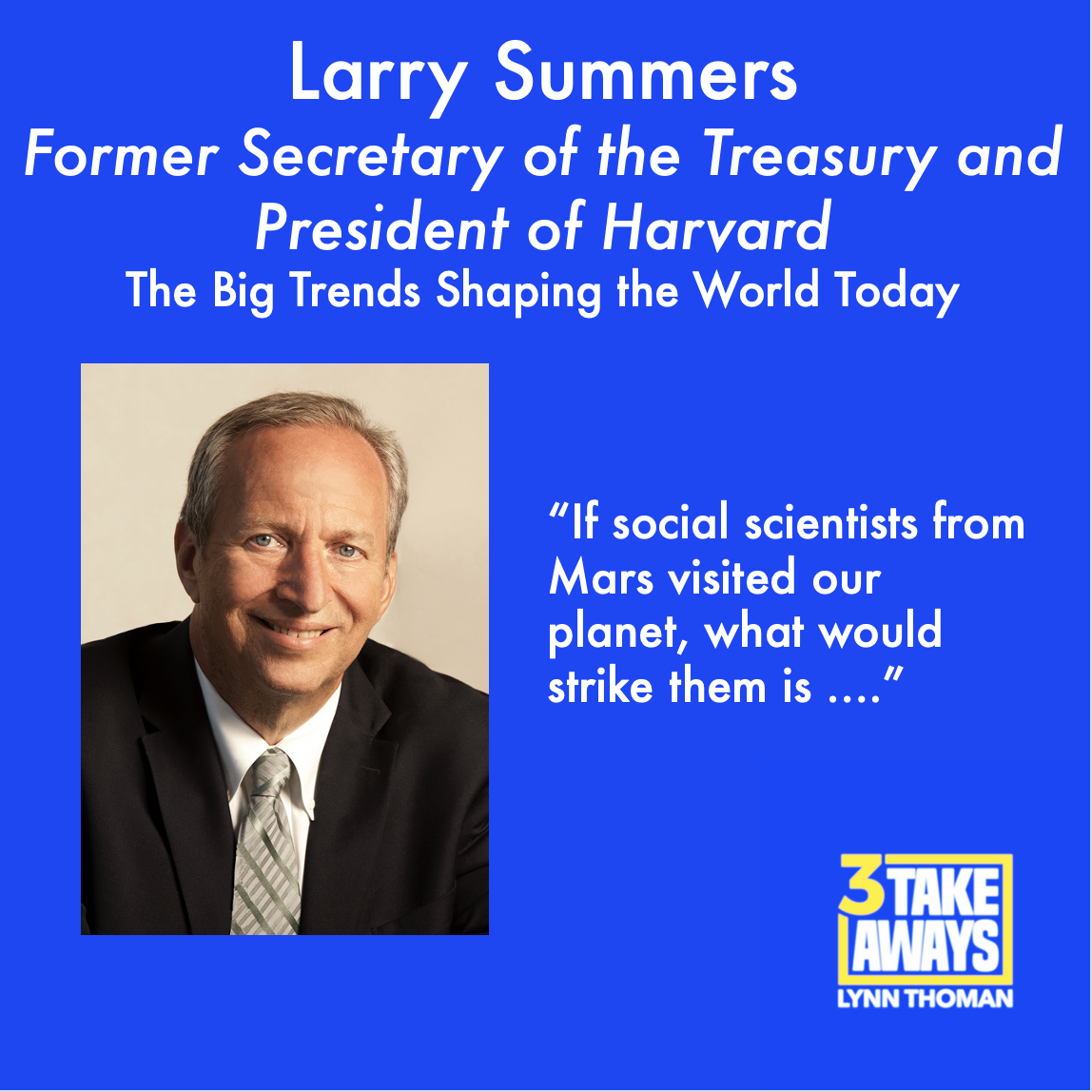
Former Secretary of the Treasury and President of Harvard, Larry Summers: The Big Trends Shaping the World Today
Former Secretary of the Treasury and President of Harvard Larry Summers talks about the defining trends of the 21st century, including how we are going to achieve collective solutions, the shift in the center of gravity of the world’s economy and culture to the east, the upcoming transformation in education, the hard choices facing the leading universities, and the exponential growth in what information technology will be capable of.
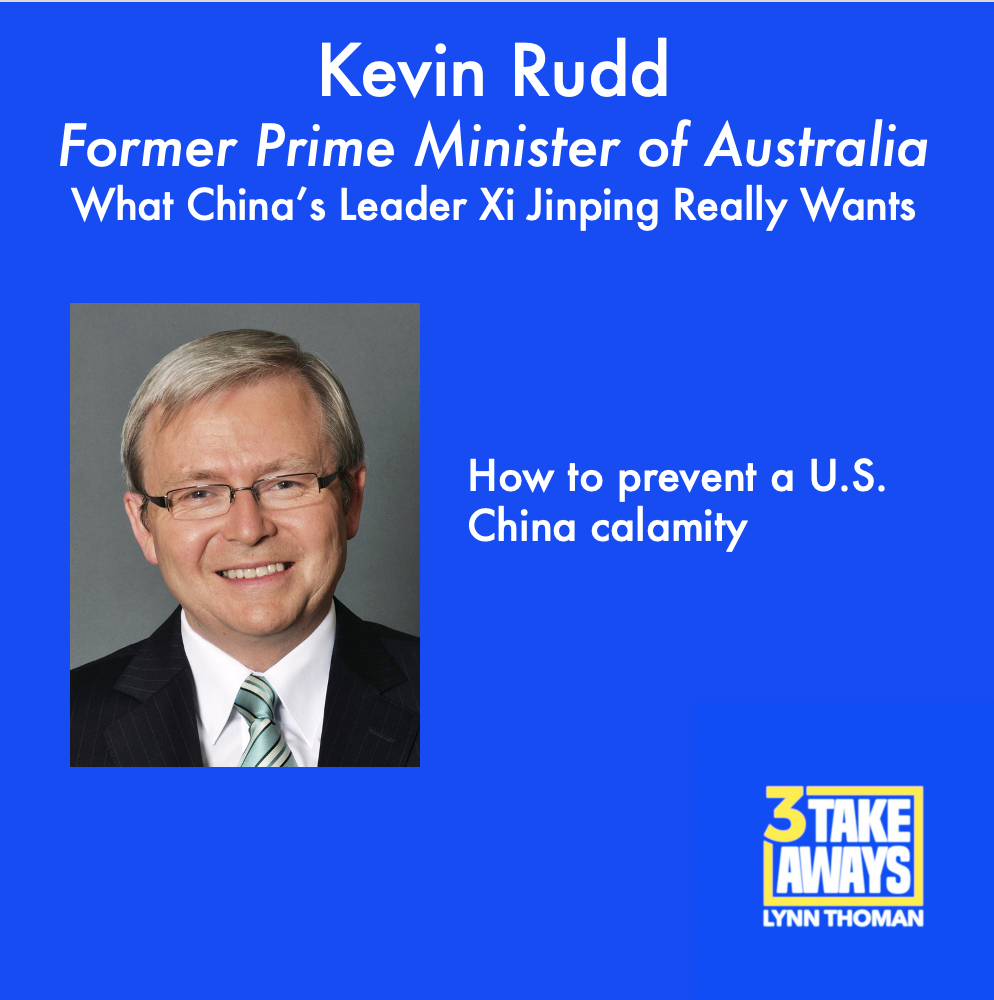
Former Prime Minister of Australia, Kevin Rudd: What China’s Leader Xi Jinping Really Wants
Former Prime Minister of Australia Kevin Rudd, who has known China’s leader Xi Jinping for decades, reveals how Xi Jinping sees China and the world, and what he really wants. Find out why America needs its allies more than ever before and what the U.S. and its allies can do.
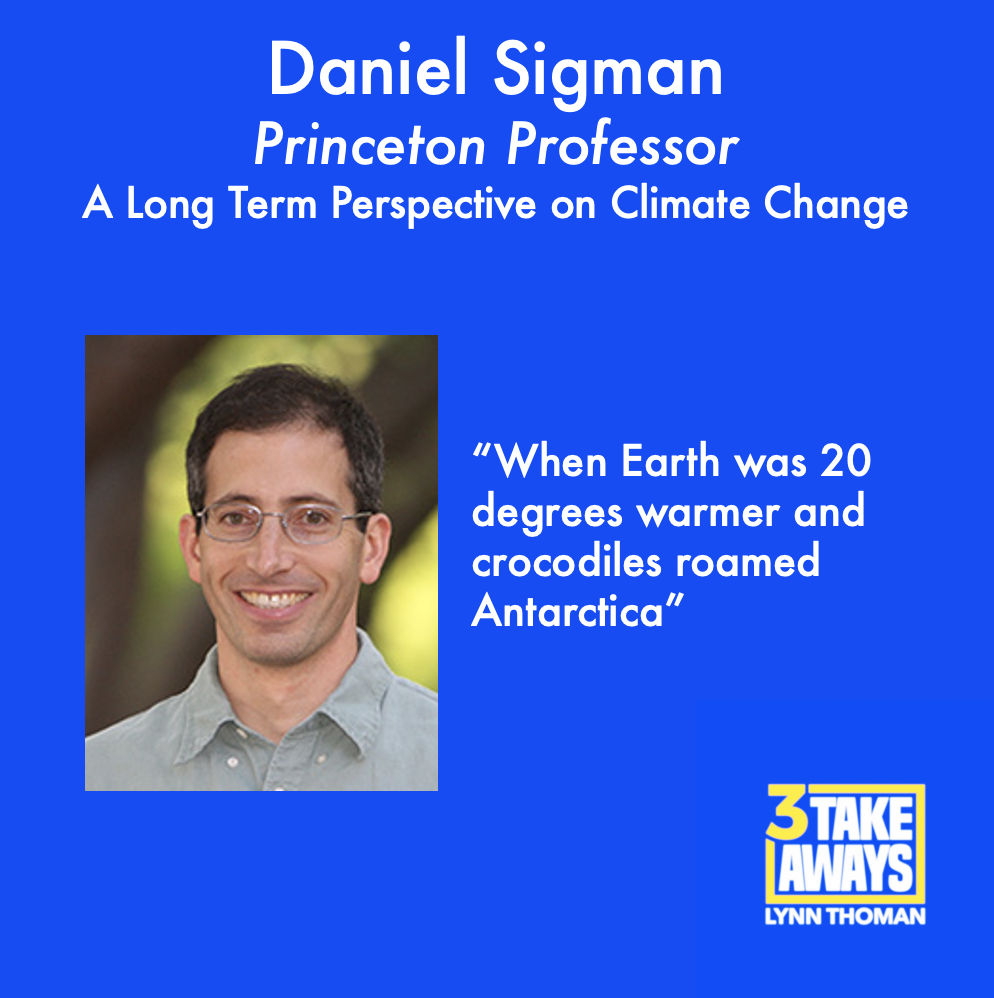
A Long Term Perspective on Climate Change - When Earth Was 20 Degrees Warmer and Crocodiles Roamed Antarctica with Princeton’s Danny Sigman
Did you know that Antarctica used to be ice-free and earth used to be 20 degrees warmer than it is now? Find out why climate change then wasn’t a problem, and why it is now with Princeton University’s Daniel Sigman. Also find out how climate change caused horses to grow from the size of large house cats to their size today.
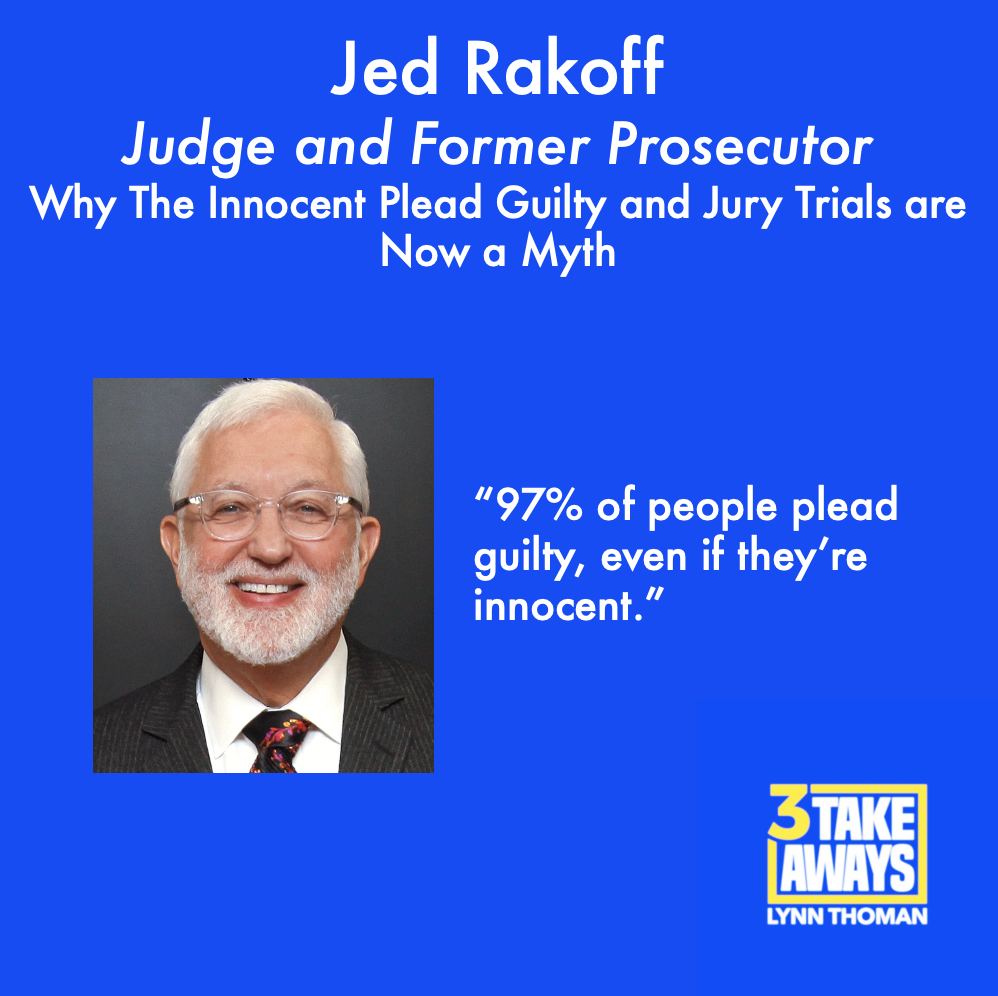
Why The Innocent Plead Guilty and Jury Trials Are Now a Myth with Judge and Former Prosecutor Jed Rakoff
97% of people plead guilty, they plea bargain, even if they’re innocent. No one can take the risk of going to trial, even innocent people, because if they're convicted they'll face huge amounts of time in prison. The possibility of being acquitted by a jury is almost gone. Find out why the innocent plead guilty and why the innocent no longer have trials from Judge Jed Rakoff, who’s seen it from all sides as a judge, former prosecutor and former criminal defense attorney.

Working for Jeff Bezos and the Secrets of Amazon’s Success
With nearly 30 years of combined Amazon experience, former Amazon Vice Presidents Colin Bryar and Bill Carr reveal the proven way Amazon innovates and scales businesses. Colin spent all day every day with Jeff Bezos for 2 years as his technical advisor. Bill led the launch and growth of the Kindle, Amazon Music, and Prime Video. Find out how Amazon’s success is due to a well-defined set of principles and practices which they reveal here and illustrate with stories. Find out also what Jeff Bezos is really like and why his siblings hated to go to movies with him.

Nobel Laureate, Daniel Kahneman: His Latest Findings on "Noise" and Flaws in Human Judgement
Learn about Nobel Laureate Daniel Kahneman’s latest findings on “noise” and how there is more noise and flaws in human judgement than you think — Find out why you should see a doctor in the morning and go to court after lunch.

Tom Friedman: On the World Getting Flatter and More Fragile, and Elephants Flying
Tom Friedman, author, New York Times columnist, and winner of three Pulitzer Prizes, talks about the world getting flatter and more fragile; abolishing recessions and interrupting the natural laws of capitalism; why the U.S. needs a healthy Republican Party; and how the world AC (After Corona) will be very different from the world BC (Before Corona).

How Right and Wrong Change with Technology with Juan Enriquez
We all think we know what’s right and wrong but we don’t because right/wrong changes over time. Our great grandchildren might be shocked by people eating meat, and the risks of pregnancy, childbirth and unedited genes. Find out which things we're doing now that will be viewed as wrong, and learn about the almost inconceivable things that will become “right" because of new technology. Will genetic engineering of humans for space travel become acceptable? Bigger brains? More compact bodies? Different species of humans to increase our odds of survival?

Princeton Psychology Professor, Eldar Shafir: Why Having Too Little Makes People Perform Worse and Become More Impatient, Impulsive and Careless
Learn how scarcity of anything — money, food or social connections — affects our daily lives and leads us astray. Scarcity reduces both intelligence and control. Having too little preoccupies and taxes the mind, making life much harder. "Even smiling and being pleasant is hard when your mind is taxed. The employee snaps at rude customers ... The parent snaps at the child ... The server rings up the wrong item.” Learn about the latest cutting edge behavioral science to find out how the poor can escape the scarcity trap and how we can all manage scarcity for better satisfaction and success.

Harvard’s Chair of Astronomy, Avi Loeb: Why We Are Not Alone and Are Very Common Like Ants On A Sidewalk
Find out why Harvard’s Chair of Astronomy Avi Loeb says we are not alone in the universe and that there are more intelligent and sophisticated civilizations than ours. Learn about the evidence that we aren't the “smartest cookie in the jar.” Find out when we were visited by another civilization and how we can create life on other planets by launching what he calls "Noah's spaceship.”
